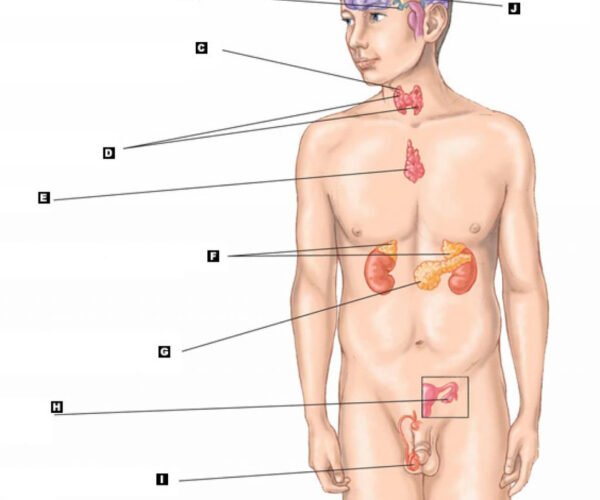Glucagon, a hormone produced by the pancreas, plays a key role in regulating blood glucose levels. While medical interventions are often necessary for managing its imbalances, especially in conditions like diabetes, there are natural ways to support and improve its regulation. This article discusses natural approaches to treating its imbalance, focusing on dietary changes, lifestyle adjustments, and holistic practices.
Understanding Glucagon Imbalance
Its imbalance typically manifests as either an overproduction or inadequate production of it, impacting blood sugar regulation. This can lead to hyperglycemia (high blood sugar) or hypoglycemia (low blood sugar), respectively. Understanding the role of glucagon and its interaction with insulin is crucial in managing these imbalances.
Dietary Strategies
Low Glycemic Index Foods:
Stabilizing Blood Sugar: Consuming foods with a low glycemic index can help stabilize blood sugar levels, indirectly supporting glucagon balance.
Examples: Include whole grains, legumes, most fruits, and non-starchy vegetables in your diet.
Balanced Carbohydrate Intake:
Controlled Glucose Release: A balanced intake of carbohydrates ensures a controlled release of glucose into the bloodstream, aiding in maintaining glucagon and insulin balance.
Portion Control: Be mindful of portion sizes to avoid sudden spikes in blood sugar.
Protein-Rich Foods:
Protein and Glucagon Secretion: Protein-rich foods can influence glucagon secretion, helping to regulate blood sugar levels.
Healthy Sources: Opt for lean protein sources like poultry, fish, tofu, and legumes.
Healthy Fats:
Insulin Sensitivity: Including healthy fats in your diet can improve insulin sensitivity, indirectly affecting glucagon regulation.
Sources: Avocados, nuts, seeds, and olive oil are good options.
Lifestyle Modifications
Regular Physical Activity:
Exercise and Glucagon: Regular physical activity can help regulate blood sugar levels and improve the body’s response to insulin and glucagon.
Types of Exercise: A combination of aerobic and resistance training is beneficial.
Stress Management:
Impact of Stress: Chronic stress can affect hormonal balance, including glucagon secretion.
Stress-Reduction Techniques: Practices like yoga, meditation, and mindfulness can help manage stress.
Adequate Sleep:
Sleep and Hormonal Balance: Quality sleep is essential for hormonal balance, including the regulation of glucagon.
Sleep Hygiene: Aim for 7-9 hours of sleep per night and maintain a regular sleep schedule.
Holistic and Herbal Remedies
Herbal Supplements:
Herbs for Blood Sugar Control: Certain herbs like cinnamon, fenugreek, and bitter melon are known for their blood sugar-regulating properties.
Consultation with a Professional: Always consult with a healthcare professional before starting any herbal supplements, especially if you have a medical condition or are taking medications.
Acupuncture and Traditional Medicine:
Balancing Energy: Practices like acupuncture, often used in traditional Chinese medicine, may help in balancing the body’s energy and improving metabolic health.
Monitoring and Professional Guidance
Regular Monitoring:
Blood Sugar Tracking: Regular monitoring of blood sugar levels can help in assessing the effectiveness of natural approaches to managing glucagon imbalance.
Medical Supervision: Especially for individuals with diabetes or other metabolic disorders, medical supervision is crucial.
Consultation with Healthcare Professionals:
Personalized Approach: Work with healthcare providers to develop a personalized plan that considers your specific health needs and conditions.
The Importance of a Balanced Approach
Combining Strategies: A holistic approach combining diet, exercise, stress management, and adequate sleep can be more effective in managing glucagon imbalance.
Individual Variability: Recognize that individual responses to natural treatments can vary, necessitating adjustments and ongoing evaluation.
Conclusion
Natural approaches to treating glucagon imbalance focus on dietary changes, lifestyle adjustments, and holistic practices. While these strategies can be effective in supporting glucagon regulation and overall metabolic health, they should complement, not replace, medical treatment, especially in cases of diabetes or significant hormonal imbalances. Working closely with healthcare professionals to create a comprehensive management plan is essential for achieving the best outcomes.
Also Read: how does vasopressin affect blood pressure and kidney function?
What is the role of vasopressin.
Vasopressin, also known as the antidiuretic hormone (ADH), is a key hormone in the body’s regulation of water balance and.
Read More
Empowering Minds, Nourishing Bodies: Introducing Hormone.
In the pursuit of knowledge-driven wellness, Dr. Zaar, a distinguished specialized clinic dietitian in Lahore, introduces a groundbreaking educational initiative—Hormone.
Read More